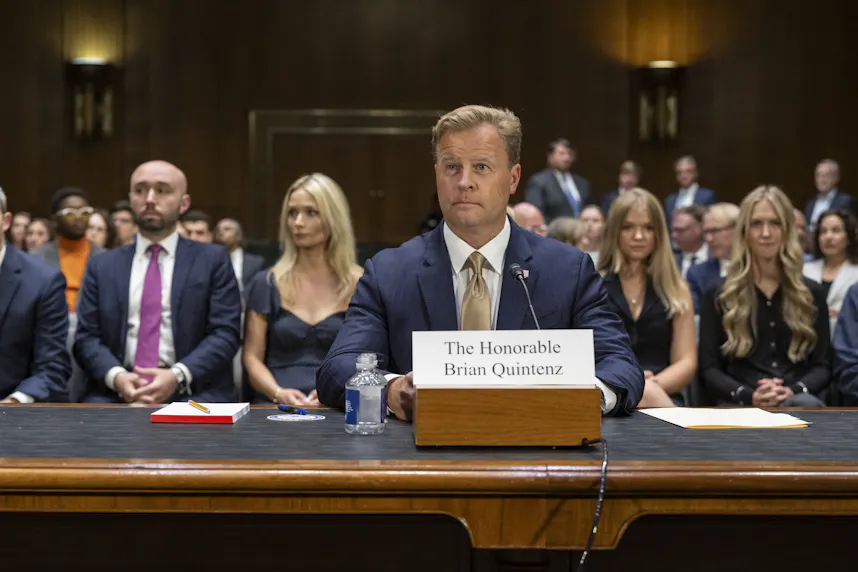White House Weighs New Options for CFTC Chair

Last Updated: September 22, 2025 2:36 PM EDT • 2 minute read X Social Google News Link


The White House is reportedly exploring alternative candidates to lead the Commodity Futures Trading Commission (CFTC). The news comes as Brian Quintenz's nomination remains stalled in the Senate.
According to people familiar with the discussions, the Trump administration has considered other names in recent weeks, including potential nominees with backgrounds in cryptocurrency regulation.
Quintenz, nominated in February, has faced repeated delays in his confirmation process. The administration requested a postponement of the Senate Agriculture Committee's vote in July but later reiterated support for him.
His candidacy has also received pushback from parts of the crypto sector. Gemini founders Tyler and Cameron Winklevoss, both major donors to President Donald Trump's election campaign, said Quintenz's views on digital assets did not align with administration policy.
The dispute escalated when Quintenz accused the Winklevoss twins of lobbying President Trump against him after he declined to pursue Gemini's complaint alleging misconduct by CFTC staff during a past inquiry.
At a recent Senate Agriculture, Nutrition, and Forestry Committee hearing, Quintenz avoided taking a firm stance on sports-related prediction markets. In his testimony, he indicated that under his leadership, the agency would be unlikely to pursue enforcement action against Kalshi or other prediction market operators.
Lawmakers are drafting legislation that would expand the CFTC's authority over digital assets, positioning the agency as a key player in shaping US crypto oversight. Despite this, the regulator currently has only one active commissioner, Caroline Pham, who is filling the role of acting chair.
Pham has indicated she plans to leave once a permanent chair is confirmed, leaving the agency with an uncertain leadership structure.
Sleeper disputes CFTC decision
The uncertainty over the CFTC chairmanship comes as the regulator faces separate pressure from the fantasy sports operator Sleeper. The company has filed complaints alleging the commission improperly blocked its entry into the prediction market space.
Joshua Sterling of Milbank, Sleeper's attorney, submitted letters to the inspector general offices of both the CFTC and the Treasury Department. The filings argue that the National Futures Association (NFA) was set to approve Sleeper's registration as a futures commission merchant (FCM) before the CFTC directed the association to halt action.
Sterling described the intervention as an unlawful delay under the Commodity Exchange Act. Securing FCM registration would allow Sleeper to handle customer funds and form partnerships with designated contract markets, enabling it to offer futures tied to sports outcomes.
The company maintains that the CFTC's move exceeded its authority and closed new competition to the event-contract market. Now subject to the inspector general's office review, the dispute could spill over into a larger administrative or legal process.

Ziv Chen X social





